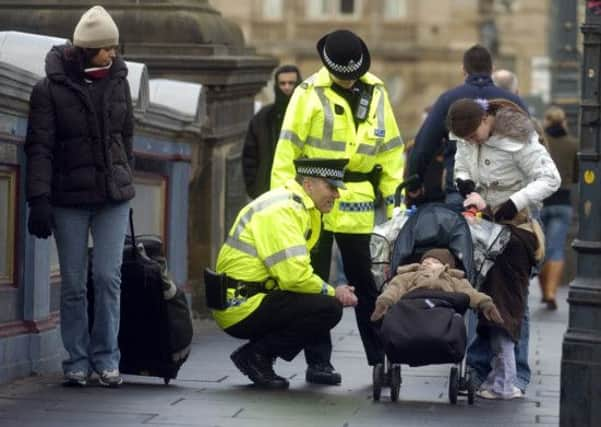Ross Deuchar: The balance in policing policy


In the aftermath of the Mark Duggan inquest, Home Secretary Theresa May is considering reforms to police use of stop and search in England and Wales. One proposal is to curtail the use of Section 60 of the Criminal Justice and Public Order Act (1994), which allows officers to stop someone without any reasonable suspicion that they are involved in a crime.
In recent months, Police Scotland has also come under attack because of the reported increase in stop and search incidents north of the Border. Since the launch of the national force, it is estimated that there has been approximately one stop and search conducted per police officer per week, with just over half a million in total. Politicians and journalists have expressed fears that the use of stop and search is often driven by target-setting, and human rights groups have argued that the overuse of such measures could bring the same types of police-community tensions evident in England.
Advertisement
Hide AdAdvertisement
Hide AdBut the political hype masks the true facts about what is actually happening in Scotland.
Firstly, the legal infrastructure is different than in England and Wales: under the Criminal Procedure (Scotland) Act (1995), Scottish officers have powers to stop and search individuals only if there are “reasonable grounds to suspect” that an offence has been, or is about to be, committed.
Secondly, there has always been a strong focus on community-oriented policing in Scotland, where officers work in co-operation with the public.
Thirdly, the total number of 520,000 stop and searches conducted in the ten months since Police Scotland formed is actually 0.2 per cent lower than those recorded in the same period last year.
And, fourthly, an average of one in five of the searches carried out this year have been positive.
Certainly, the latest national crime figures in Scotland look impressive: violent crime has fallen by 14 per cent, anti-social behaviour dropped by 13 per cent and in recent years, according to the Scottish Crime and Justice Survey, there have been 126,000 fewer victims of crime. My recent work has enabled me to shadow Scottish police officers during routine patrols.
Admittedly, I found that young men in socially deprived housing schemes were stopped and searched most frequently. But, the interventions I observed were always based on intelligence, and were invariably positive. At various points, I witnessed offensive weapons, drugs and alcohol being removed from the possession of young people. And I found that officers tended to believe that words were more effective than confrontation or coercion in dealing with local incidents.
During one memorable stop and search, I witnessed two young officers enjoying great banter with a group of young lads out on the street. After the initial exchange, one of the officers said: “We’re just gonna give you a wee search lads, OK?”, while he took the time to explain the reasons for the search.
Advertisement
Hide AdAdvertisement
Hide Ad“Aye nae bother big man,” the youngsters replied, having been put at their ease. When we walked away from them, I heard one of the young lads comment, “They’re brand new, man!” I found that incidents of this kind were not uncommon; most of the officers I observed placed an emphasis on rapport-building and positive dialogue.
Using stop and search procedures in a random way, driven only by police targets is ethically wrong, and using aggressive strategies to conduct them is inadvisable. But my experience of working with Police Scotland has shown that stop and search is an effective strategy for taking offensive weapons off the street and for recovering drugs and alcohol.
In turn, this can have a positive impact on preventing violence and antisocial behaviour. When it’s used as well as I have seen it used, it also presents an opportunity for officers to create positive engagements with young people. As one young police officer I worked with put it, the most valuable skill in policing is “being able to ‘chew the fat’ – just being able to talk to people”.
Research suggests that, if young people have positive encounters with police officers, they are more likely to be compliant with the law and to report criminal incidents in the future.
My experiences have shown me that officers are drawing upon the fundamental values of integrity, fairness and respect in conducting stop and searches, and winning the trust of many young people along the way.
Perhaps our politicians and the media need to have that same level of trust. Most importantly, they need to realise that comparing policing issues in Scotland with what is happening in England is a bit like comparing apples and oranges.
• Ross Deuchar is professor of criminology at the University of the West of Scotland and author of Policing Youth Violence: Transatlantic Connections.